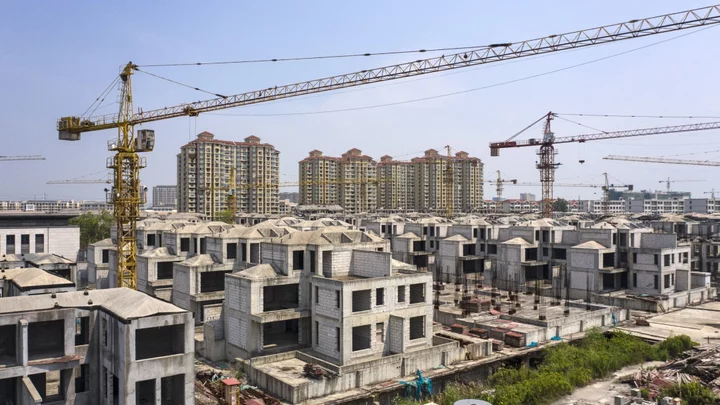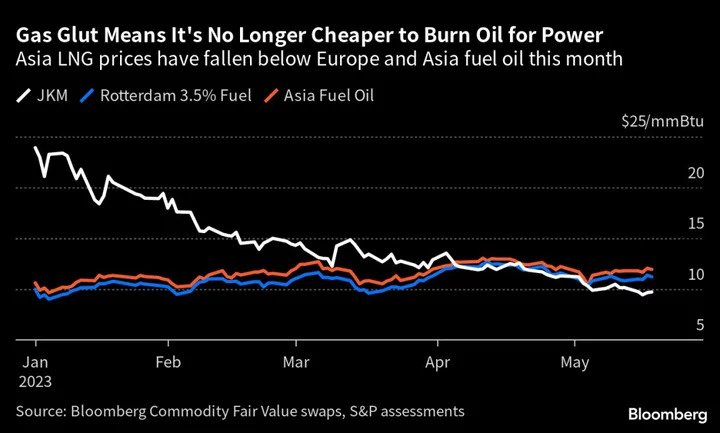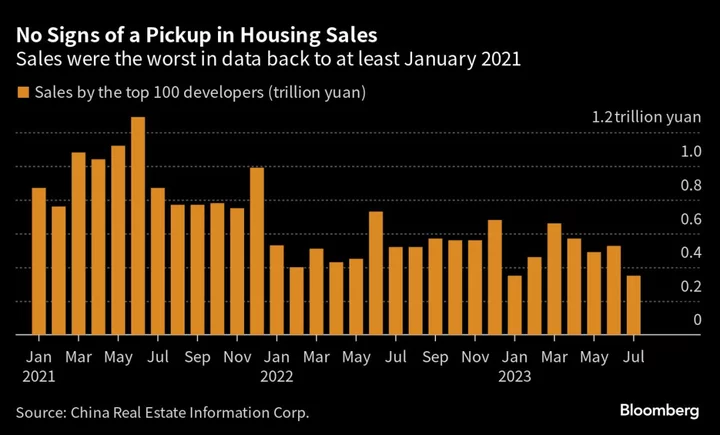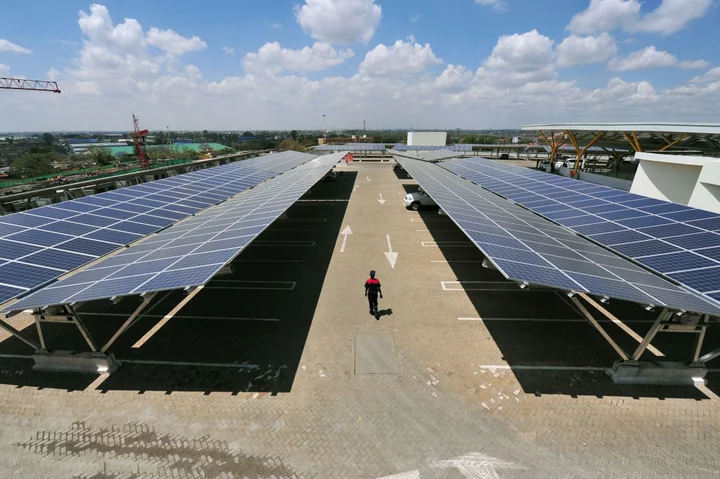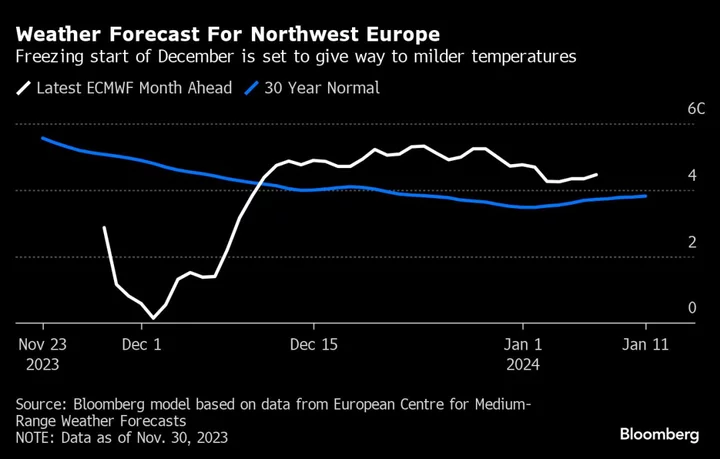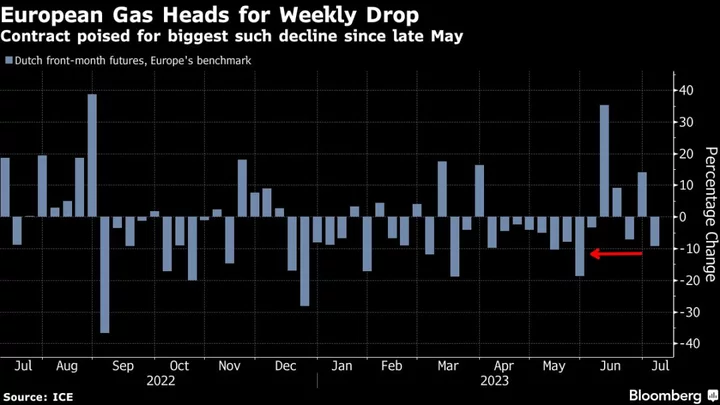China unveiled a further easing of its mortgage policies to halt a slump in its residential property market and revive growth in the world’s second-largest economy.
The country is proposing that local governments can scrap a rule that disqualifies people who’ve ever had a mortgage - even if fully repaid - from being considered a first-time homebuyer in major cities, official Xinhua news agency reported on Friday, citing the Ministry of Housing and Urban-Rural Development, the People’s Bank of China and the National Administration of Financial Regulation.
City governments can have leeway on whether to adopt the policy, according to the notice.
China’s real estate sector is unraveling and risks are spreading to the country’s $60 trillion financial system. China’s existing policies have failed to sustain a rebound in the property market as price declines extend across the nation, putting the government’s 5% economic growth target at risk.
While Chinese stocks posted a knee-jerk rally on the news, the benchmark CSI 300 Index erased nearly all of those gains within 30 minutes. It was trading 0.6% lower as of 2:29 p.m. in Shanghai.
“The policy is certainly positive and supportive to housing demand,” said Bruce Pang, chief economist and head of research for greater China at Jones Lang LaSalle Inc. “But in terms of its impact on the property market, we will need more time for confidence and sentiment to recover under the downward spiral of home prices. We’re not at a turning point yet.”
Country Garden Holdings Co., a developer that was once a pillar of the industry, is on the verge of default, suggesting no company is too big to fail. More developers are on the brink, home prices are collapsing in smaller cities, and shadow bank Zhongrong International Trust Co. missed payments on dozens of high-yield investment products this month, sparking protests outside its headquarters in the Chinese capital.
In at least ten of the biggest cities, homebuyers with a mortgage record who don’t own a property have been subject to higher down payment requirements and more restrictive borrowing limits. That has suppressed demand as these people have been treated as second-time buyers.
In the capital of Beijing, a second-time buyer needs to come up with a down payment of as much as 80% of the property’s value. The down payment is 40% for first-timers.
The country’s top housing official last month urged financial regulators and lenders to strengthen efforts to revive the property sector, calling for homebuyers who had paid off previous mortgages to be considered as first-time purchasers.
Developers are facing a 62 trillion yuan ($8.5 trillion) gap to meet their financial obligations, Australia & New Zealand Banking Group estimated in a report.
For home prices, official statistics show a steady drip of monthly declines of less than 1%, but reports on the ground from agents show drops of 15% or more in some areas over the last two years. Even though it helps Beijing’s affordability push, sliding home values have shattered consumer confidence.
Property debt — two thirds of which are mortgages and the rest developers’ — account for 48% of GDP at 58 trillion yuan, Goldman Sachs estimated in a report. While household mortgages pose less of a threat to banks due to high down payment requirements, China could see 2 trillion yuan of credit sour at a 10% loss rate mostly due to risks posed by developers, the report said.
Here are the existing support measures for the industry:
- Lower mortgage rates for first-home buyers if newly constructed house prices drop for three consecutive months
- A nationwide cap on real estate commissions to boost demand
- Allowing private equity funds to raise money for residential property developments
- Pledging 200 billion yuan ($27 billion) in special loans to ensure stalled housing projects are delivered
- A 16-point plan unveiled in November that ranged from addressing the liquidity crisis to loosening down-payment requirements for homebuyers
- On Aug. 15, the central bank made its steepest cut in three years to a key interest rate to provide some stimulus.
(Updates with background on previous mortgage rules throughout story)

